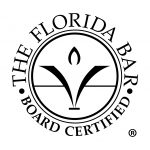
How Trusts work
A Living Trust can be used to privately settle your estate, rather than have your estate settled publicly through the probate court
Nuts and Bolts of how Trusts work
Private settlement of your estate, rather than probate
Trusts operate on assets funded in the trust
A Trust operates as a Will substitute. However, you should have a type of Will specially tailored to be paired with a trust (Pour-Over Will)
Funding your trust is very important; contrasting with Wills whereby funding is often not a critical issue
Benefits of Trusts
Avoids the publicity, expense and delay of probate in most cases.
A trust is a better management vehicle for management of your assets in the case that you someone to help you if your health fails.
Avoids the interruption of income for family members on the death of the settlor or on his becoming disabled or incompetent.
Allows the settlor to view the trust in operation and to make changes as experience and changed circumstances suggest.
Brings together assets scattered in two or more states or jurisdictions and places title in the trustee, thereby avoiding administration of the individual’s estate, particularly real estate, in different places.
Makes it easier to select the law that is to govern the trust than if this were attempted by will.
Enables a going business to continue without interruption.
Relieves the settlor of burdens of investment management.
May authorize the trustee to advance funds to the settlor’s executor for certain purposes or to buy assets from the executor at a fixed price, and thereby avoid the forced sale of estate assets at depressed prices.
Requires less accounting, administration and judicial supervision than a trust created by will.
May assist in the management of assets for a young adult or spendthrift when the power to revoke is vested in another (often a parent).
Trust Beneficiaries
- Beneficiaries of your Trust are your “objects of bounty.” For some clients these are your children or grandchildren. For other clients the beneficiaries are a friend, more remote relatives, a charity, or a combination of the foregoing.
Who can be Trustee and Successor Trustee
You do not have to name a commercial bank or trust company as trustee. You can be the initial trustee, and you can name a family member or beneficiary to be successor trustee on your death. However, you can choose to name a commercial trustee if you desire to have professional management of the trust
Initial Trustee: Commonly with a Living Trust the settlor or settlors are the initial trustee(s). However, this is not the only choice. Some clients opt for professional management of a trust even from the very beginning. Other clients either never bring aboard a professional or commercial trustee, or only do so after their own passing.
Successor Trustee: All trusts should consider an orderly succession of trustees. In addition to having a successor trustee to administer the trust at passing of the Trust settlor, you should carefully consider the need to have one or more back up trustee designations.
What a Trust does not do …..
A trust in Florida does not legally nullify creditor claims. Under Florida law, in theory a trust is subject to claims of creditors just the same as under a Will. However, practical application is much different from theory.
A trust does not prevent litigation; and estate litigation can be expensive, time consuming and emotionally wrenching for your beneficiaries.
A trust by itself (without special clauses added) does not save estate taxes. However, estate tax savings clauses can be added to trusts to save estate taxes.
- Want to compare how a trust works to a Last Will and Testament? Visit the page on Last Will and Testament
Funding your Trust
Remember to fund you Trust! “Funding” a Trust involves placing the assets into the trust.
Pour Over Will
A special kind of Will paired with a Living Trust. Any asset not funded during lifetime “pours-over” from the Will/Estate to the Trust. This occurs whether the asset was not funded into the Trust intentionally or inadvertently.
Beneficiary Designation Assets
